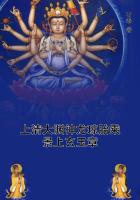At the dawn of an October day in 1827 a young fellow about sixteen years of age, whose clothing proclaimed what modern phraseology so insolently calls a proletary, was standing in a small square of Lower Provins. At that early hour he could examine without being observed the various houses surrounding the open space, which was oblong in form. The mills along the river were already working; the whirr of their wheels, repeated by the echoes of the Upper Town in the keen air and sparkling clearness of the early morning, only intensified the general silence so that the wheels of a diligence could be heard a league away along the highroad. The two longest sides of the square, separated by an avenue of lindens, were built in the simple style which expresses so well the peaceful and matter-of-fact life of the bourgeoisie. No signs of commerce were to be seen; on the other hand, the luxurious porte-cocheres of the rich were few, and those few turned seldom on their hinges, excepting that of Monsieur Martener, a physician, whose profession obliged him to keep a cabriolet, and to use it. A few of the house-fronts were covered by grape vines, others by roses climbing to the second-story windows, through which they wafted the fragrance of their scattered bunches. One end of the square enters the main street of the Lower Town, the gardens of which reach to the bank of one of the two rivers which water the valley of Provins. The other end of the square enters a street which runs parallel to the main street.
At the latter, which was also the quietest end of the square, the young workman recognized the house of which he was in search, which showed a front of white stone grooved in lines to represent courses, windows with closed gray blinds, and slender iron balconies decorated with rosettes painted yellow. Above the ground floor and the first floor were three dormer windows projecting from a slate roof; on the peak of the central one was a new weather-vane. This modern innovation represented a hunter in the attitude of shooting a hare. The front door was reached by three stone steps. On one side of this door a leaden pipe discharged the sink-water into a small street-gutter, showing the whereabouts of the kitchen. On the other side were two windows, carefully closed by gray shutters in which were heart-shaped openings cut to admit the light; these windows seemed to be those of the dining-room. In the elevation gained by the three steps were vent- holes to the cellar, closed by painted iron shutters fantastically cut in open-work. Everything was new. In this repaired and restored house, the fresh-colored look of which contrasted with the time-worn exteriors of all the other houses, an observer would instantly perceive the paltry taste and perfect self-satisfaction of the retired petty shopkeeper.
The young man looked at these details with an expression of pleasure that seemed to have something rather sad in it; his eyes roved from the kitchen to the roof, with a motion that showed a deliberate purpose. The rosy glow of the rising sun fell on a calico curtain at one of the garret windows, the others being without that luxury. As he caught sight of it the young fellow's face brightened gaily. He stepped back a little way, leaned against a linden, and sang, in the drawling tone peculiar to the west of France, the following Breton ditty, published by Bruguiere, a composer to whom we are indebted for many charming melodies. In Brittany, the young villagers sing this song to all newly-married couples on their wedding-day:--"We've come to wish you happiness in marriage, To m'sieur your husband As well as to you:
"You have just been bound, madam' la mariee, With bonds of gold That only death unbinds:
"You will go no more to balls or gay assemblies;
You must stay at home While we shall go.
"Have you thought well how you are pledged to be True to your spouse, And love him like yourself?
"Receive these flowers our hands do now present you;
Alas! your fleeting honors Will fade as they."
This native air (as sweet as that adapted by Chateaubriand to /Ma soeur, te souvient-il encore/), sung in this little town of the Brie district, must have been to the ears of a Breton maiden the touchstone of imperious memories, so faithfully does it picture the manners and customs, the surroundings and the heartiness of her noble old land, where a sort of melancholy reigns, hardly to be defined; caused, perhaps, by the aspect of life in Brittany, which is deeply touching.
This power of awakening a world of grave and sweet and tender memories by a familiar and sometimes lively ditty, is the privilege of those popular songs which are the superstitions of music,--if we may use the word "superstition" as signifying all that remains after the ruin of a people, all that survives their revolutions.
As he finished the first couple, the singer, who never took his eyes from the attic curtain, saw no signs of life. While he sang the second, the curtain stirred. When the words "Receive these flowers" were sung, a youthful face appeared; a white hand cautiously opened the casement, and a girl made a sign with her head to the singer as he ended with the melancholy thought of the simple verses,--"Alas! your fleeting honors will fade as they."
To her the young workman suddenly showed, drawing it from within his jacket, a yellow flower, very common in Brittany, and sometimes to be found in La Brie (where, however, it is rare),--the furze, or broom.
"Is it really you, Brigaut?" said the girl, in a low voice.
"Yes, Pierrette, yes. I am in Paris. I have started to make my way; but I'm ready to settle here, near you."
Just then the fastening of a window creaked in a room on the first floor, directly below Pierrette's attic. The girl showed the utmost terror, and said to Brigaut, quickly:--"Run away!"














